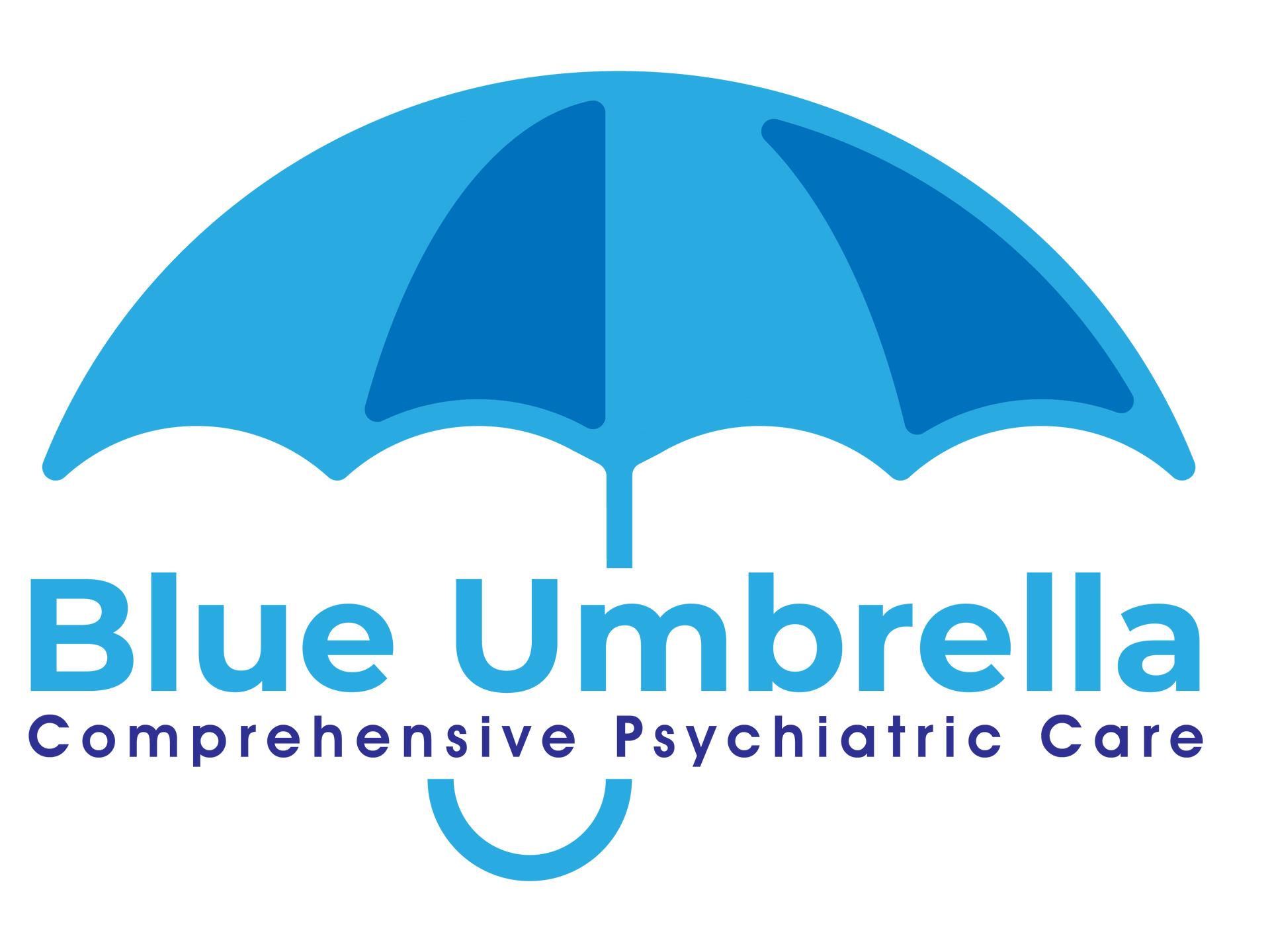ADOLESCENT MOOD DISORDERS
CARING PSYCHIATRY FOR
YOUR ADOLESCENT
Have you been concerned about the mental health of your adolescent child? At Blue Umbrella Psychiatry, board-certified child/adolescent psychiatrist Eric Robbins, MD and our dedicated care team offer customized and innovative treatments to help relieve your child’s symptoms and restore your family life to a calm and loving environment.
Mood disorders in adolescents
Why are mood disorders common in teenagers?
It is known that chemicals in the brain (neurotransmitters) are responsible for mood management and can fall out of balance, either on its own, due to environmental factors or due to underlying stress or upsetting life events, such as loss of a parent’s job, divorce, loss of a loved one, financial issues within the family. We also find that mood disorders run in families and are often of a genetic nature.
Mood disorder symptoms
- Long term sadness
- Feelings of despair, helplessness or guilt
- Low self-esteem
- Feelings of not being good enough
- Loss of interest in normal activities
- Relationship upsets
- Sleep problems, such as insomnia
- Changes in appetite or weight
- Low energy
- Problems focusing or making decisions
- Suicidal thoughts or attempts
- Frequent physical complaints, such as headache, stomachache, or extreme tiredness (fatigue)
- Running away or making threats of running away from home
- Sensitivity to failure or rejection
- Being grouchy, hostile, or angry
Other signs of possible mood disorders may include
- Poor performance in school
- Constant anger
- Rebellious behaviors
- Trouble with family
- Trouble with friends and peers
The blue umbrella psychiatry program
Your child’s initial evaluation begins with a thorough assessment. We’ll learn about current symptoms and lifestyle as well as your child’s health history, along with your family medical history. We’ll discuss what efforts you’ve already tried, from medications to alternative medical approaches toward resolving symptoms. If a diagnosis is made, we’ll discuss evidence-based treatment options with you. We’ll work together to customize a treatment plan to relieve your child’s symptoms and restore quality of life. If necessary, your child will be prescribed medication to regulate your brain chemistry and mood. As your symptoms subside, your child will have more mental clarity and space to focus on exploring and resolving any underlying issues in individual or group therapy.
We welcome you to Blue Umbrella Psychiatry, where our team is committed to your mental health care. Call today to schedule your appointment.
individual therapy
Individual therapy, also known as psychotherapy or counseling, is a crucial and effective form of mental health support that focuses on the needs of a single individual. It offers a safe and confidential space where a person can work closely with a trained therapist or counselor to explore their thoughts, emotions, behaviors, and challenges. The importance of individual therapy lies in several key aspects, including:
- Personalized Attention
- Confidentiality
- Targeted Problem-solving
- Emotional Support
- Self-Discovery and Insight
- Building Coping Skills
- Resolving Trauma
- Enhancing Relationships
- Mental Health Maintenance
- Empowerment and Growth
In order for sustained and profound change to occur, you must work with the psychological, social and cultural aspects of life as well. We offer collaborative and evidence-based care for children, adolescents and adults to help create a meaningful life.
family therapy
Each of our therapists is trained in facilitating family therapy sessions. Goals include improving communication, developing and maintaining healthy boundaries and promoting problem solving behaviors. Each family has its own unique family dynamics and our team will help you to understand current dynamics and move toward an optimal cohesion for improved day to day life and a brighter outlook for the future for each family member, especially for those with mental illness. The main focus is on understanding the family dynamics and communication patterns to improve overall functioning and well-being. The benefits of family therapy include:
- Improved Communication
- Strengthened Relationships
- Enhanced Problem-Solving Skills
- Family Bonding
- Resolving Family Conflicts
- Improved Coping Strategies
- Addressing Family Changes
- Understanding Family Patterns
- Support for Specific Issues
- Inclusive Approach
- Prevention of Relapse
Overall, family therapy offers a comprehensive and systemic approach to understanding and addressing family challenges. By improving communication, resolving conflicts, and fostering a supportive environment, family therapy can lead to positive and lasting changes that benefit all family members.
group therapy
You are not alone in your struggles. Blue Umbrella Psychiatry has multiple group therapy programs to allow you to build relationships, find common ground and experiment with new ways of living life.
Group therapy is a valuable and effective form of therapeutic intervention that involves a small group of individuals working together under the guidance of a trained therapist or counselor. The importance of group therapy lies in its unique benefits and outcomes, which complement and sometimes surpass those of individual therapy. Here are some key aspects of its significance:
- Shared Support and Understanding
- Normalization of Experiences
- Feedback and Perspective
- Social Skills Development
- Empowerment and Encouragement
- Cost-Effectiveness
- Diversity and Inclusivity
- Real-life Simulation
- Generalization of Skills
- Long-lasting Support Network
Overall, group therapy offers a dynamic and enriching experience that complements individual therapy and can lead to significant personal growth and positive change. The combination of shared support, diverse perspectives, and the opportunity for social skills development makes group therapy a valuable and impactful approach to promoting mental health and well-being.



